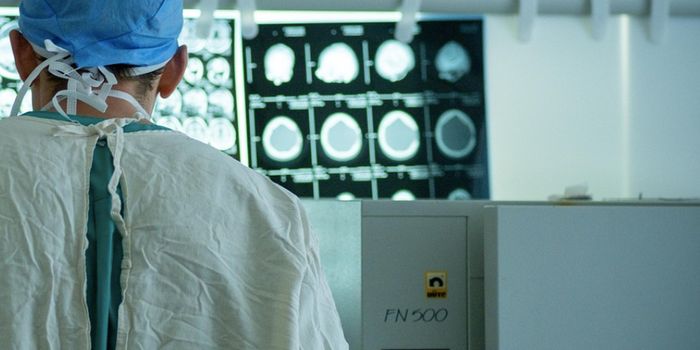Combined with Fasting-Mimicking Diet, Vitamin C May Have Anti-Cancer Effect
People have long been searching for ways to treat cancer that don't involve the usual approaches in an effort to avoid the harmful side effects that can come with typical cancer treatments. A new study reported in Nature Communications has suggested that one such cancer treatment that has been studied, high-dose vitamin C, may be effective when combined with a diet that mimics fasting.
It is worth noting that this work was conducted in a mouse model, a major caveat. Researchers have known for years that the vast majority of cancer therapeutics that are tested in mice end up being of no use to human patients. But since cancer treatments can be toxic and hard to tolerate, and they don't work for every patient, it's certainly worthwhile to explore the efficacy of natural options.
In a mouse model of colorectal cancer, vitamin C combined with a fasting-mimicking diet delayed tumor progression or even caused cancerous tumors to get smaller.
"For the first time, we have demonstrated how a completely non-toxic intervention can effectively treat an aggressive cancer," said Valter Longo, the study senior author and the director of the University of Southern California (USC) Longevity Institute at the USC Leonard Davis School of Gerontology and professor of biological sciences at the USC Dornsife College of Letters, Arts and Sciences. "We have taken two treatments that are studied extensively as interventions to delay aging: a fasting-mimicking diet and vitamin C, and combined them as a powerful treatment for cancer."
The study authors acknowledged that it could be difficult for many cancer patients to fast, so a low-calorie vegetarian diet may be a useful alternative.
Previous studies investigating vitamin C as a cancer treatment have had mixed results. Some have indicated that when combined with chemotherapy, vitamin C has an anti-cancer effect. In this work, the researchers wanted to learn more about whether a diet mimicking fasting combined with vitamin C would create an environment that was hostile to cancer cells but safe for healthy cells. Fasting-mimicking diets have been shown to make cancer cells more sensitive to chemotherapy.
"Our first in vitro experiment showed remarkable effects," said Longo. "When used alone, fasting-mimicking diet or vitamin C alone reduced cancer cell growth and caused a minor increase in cancer cell death. But when used together, they had a dramatic effect, killing almost all cancerous cells."
This treatment was most effective against certain kinds of cancer cells that carry a mutation in a gene called KRAS. Cancer cells with mutations in this gene tend to be some of the most resistant to treatment and can also reduce the survival rate of a patient. These KRAS mutations are thought to occur in as many as half of colorectal cancers. Cancer cells with KRAS mutations appear to protect cancer from vitamin C by increasing the production of ferritin, a molecule that binds to iron. When ferritin levels were lowered in the cancer cells by fasting, they became more vulnerable to vitamin C.
"In this study, we observed how fasting-mimicking diet cycles are able to increase the effect of pharmacological doses of vitamin C against KRAS-mutated cancers," said study co-author Maira Di Tano, of the IFOM, FIRC Institute of Molecular Oncology in Milan, Italy. "This occurs through the regulation of the levels of iron and of the molecular mechanisms involved in oxidative stress. The results particularly pointed to a gene that regulates iron levels: heme-oxygenase-1."
Sources: AAAS/Eurekalert! via University of Southern California, Nature Communications









